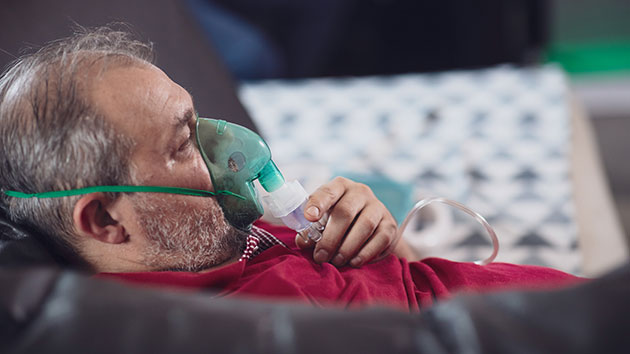What are the long-term effects of COVID-19?
Branimir76/iStock(NEW YORK) — More than 202,000 people from the 952,171 confirmed cases of COVID-19 have recovered so far, and medical professionals are now able to begin observing the long-term effects of the virus.
China reports that 80 percent of its COVID-19 cases were mild and most patients who recovered from the illness had “no lasting effect.” But Dr. Shu-Yuan Xiao, a pathology professor at the University of Chicago School of Medicine, was more worried about those who came down with the more severe symptoms of COVID-19.
For the “16-20% of symptomatic patients who eventually need ICU care, it is difficult to predict,” he says of the long-term effects.
Due to the newness of the virus, medical officials are still learning about the lasting effects but have similar respiratory diseases to compare it to.
“Based on experience from SARS and MERS, some patients may develop lung fibrosis,” says Xiao. “In China, some patients eventually needed to be on [an ECMO life-support machine], to temporarily support the patients while they regain lung function.”
He did mention that some cases may “never regain lung function.”
Dr. Amesh Adalja, an infectious disease and critical care expert at Johns Hopkins Bloomberg School of Public Health, predicts that those who had severe symptoms could take a year to regain complete lung function.
Saying “It’s not a one-size-fits-all situation,” Adalja said predicting one’s recovery depends on “how much lung tissue was destroyed by the virus” which translates to “having increased shortness of breath.”
Both agree more research is needed to fully comprehend the lingering side-effects of the COVID-19 virus, such as studying recovered patients for an extended period of time.
Copyright © 2020, ABC Audio. All rights reserved.

